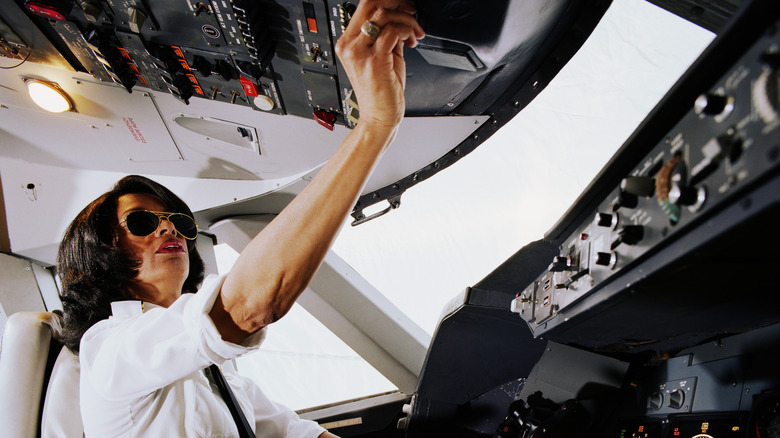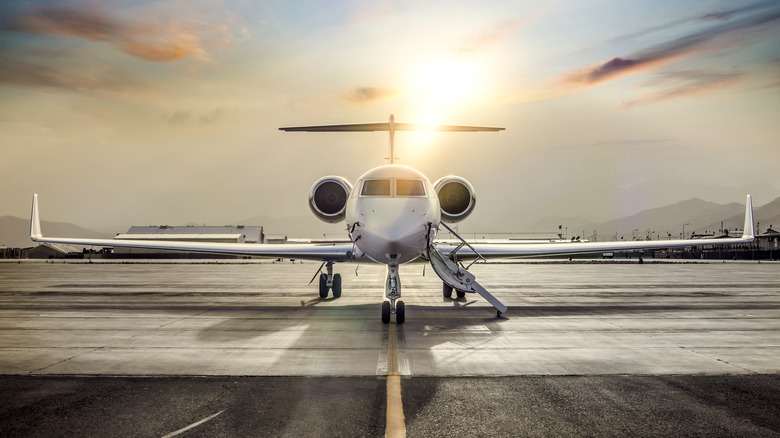A Veteran Pilot Has One Huge Tip For Anyone Learning To Fly
As the world becomes metaphorically smaller thanks to the prevalence of air travel, it's entirely understandable to want to become a pilot yourself. There's something romantic about being the steward of a gigantic flying metal beast, even more so if you're also responsible for the safety of an entire cabin of passengers. Of course, if you're interested in becoming a pilot, you first need to obtain a comprehensive education on all things aeronautic, from the operation of a plane to commonly accepted safe flying techniques.
Whether you're getting your start as a trainee pilot with the intent of working for one of the major commercial airlines or just want to be able to take a quick hop in a private aircraft, you're probably wondering what the most important lessons are to immediately take to heart. To answer that question, we spoke briefly with Retired Captain Richard Levy, a former pilot for a major U.S. airline that flew for 41 years before reaching the mandatory retirement age of 65. Following his retirement, Captain Levy now works as a flight simulator instructor for another major airline, as well as an expert consultant for attorneys engaged in aviation-related litigation. You can find out more about him, as well as contact him, through his personal website, Aviation Expert Consulting.
Don't start with a top-of-the-line aircraft
According to Captain Levy, when you're first starting out in the pilot's seat, the most important thing you can do is opt for a simpler aircraft. If you happen to be fabulously wealthy, you could probably afford a personal aircraft with all kinds of optional bells and whistles, but if you don't actually know how to fly yet, then such things would only be a distraction.
"I do not care if the person has a net worth of ten billion dollars," Captain Levy said. "In the civilian world, do not start off in what we call a high-performance, complex aircraft. Start off for the first several hundred hours in a simple single-engine aircraft with about four seats and a fixed landing gear."
Even if you have the wealth and means to obtain a luxurious, high-grade aircraft model, it would just be a waste of money if you don't know what any of its features do. When you're just starting out, a plane that only does the bare minimum of what's necessary to fly safely can help to drill the basics into you and prepare you for more complex operations much later down the line.
Read the skies, learn the signs
In addition to staying away from fancy, high-performance aircraft, Captain Levy also advises that all new pilots, wealthy or otherwise, should receive an in-person, professional education from a licensed instructor. A how-to book on piloting might be able to teach you some basic operating procedures, but an experienced pilot knows how to read the skies for signs that a flight may become unsafe.
"It could be the weather. It could be a maintenance issue. It could be an airport issue. Or it could be the overall situation is beyond the capabilities of the pilot. I do not care if it is an airline flying with 310 people or private flying in a Cessna (or Piper) with two people: it may be important to make the flight, but it is never important enough to take a risk," Captain Levy stressed.
He added that, even more so than actually being able to fly, the most important thing for a newbie pilot is knowing when to say, "it's not safe to fly right now, I need to make a new, lower-risk plan."
"That is the recipe for many years of successful, safe, happy, and fun flying. That is what it is all about," Captain Levy concluded.


